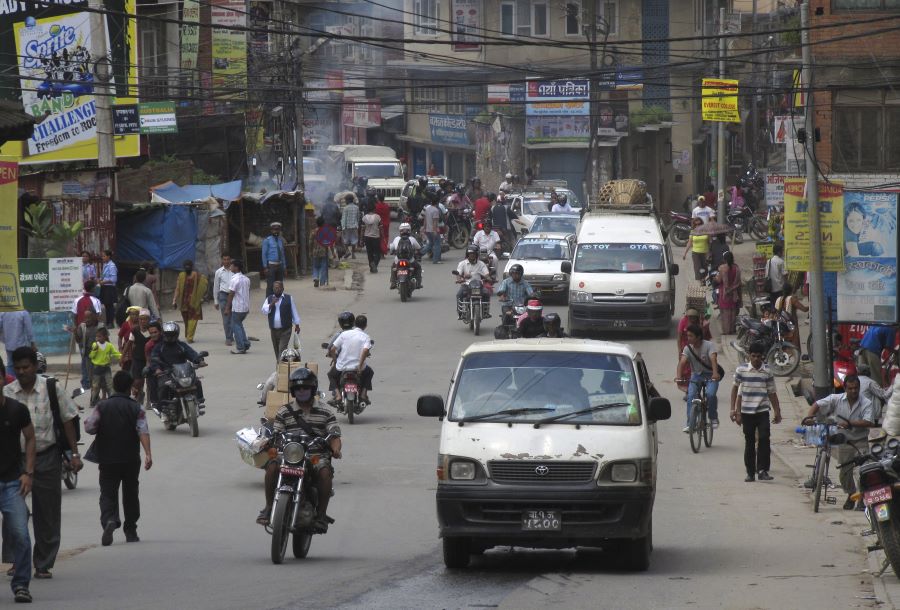iRAP is pleased to join the Heads of National Road Safety Agencies from around 100 countries coming together for the first time in Sweden this week for a global road safety summit, as well as the 2023 Vision Zero Conference, to tackle the scourge of road crash deaths and injuries worldwide.
WHO Heads of National Road Safety Agencies Summit
The first in-person meeting of the new World Health Organization (WHO)-facilitated Global Network of Heads of Road Safety Agencies will spur, aid and assess actions to meet the global goal of halving road crash deaths and injuries by 2030 that is set out in the United Nations Decade of Action for Road Safety 2021-2030.
iRAP will present in the Summit ‘Implementation of the Global Plan Roundtable’ moderated by Matts- Åke Belin, WHO’s Global Lead, Decade of Action for Road Safety 2021 – 2030 which will include opening statements on:
- Safe infrastructure – James Bradford, Global Technical Director, iRAP;
- Modal shift – Claudia Adriazola-Stein, Deputy Global Urban Mobility Director and Director of Health and Road Safety, World Resources Institute;
- Safe behavior – David Cliff, Chief Executive Officer, Global Road Safety Partnership;
- Safe vehicles – David Ward, Executive President, Global New Car Assessment Programme; and
- Post-crash response – Lotte Brondum, Executive Director, Global Alliance of NGOs for Road Safety
Road crashes kill more than 1.3 million people each year – more than two every minute – with 9 in 10 of these preventable deaths occurring in low-and middle-income countries. Road crashes are the leading global killer of children and youth aged 5-29.
“We must seize the moment of this landmark summit to lock-in life-saving national road safety strategies and action plans. National road safety agencies design and direct countries’ road safety plans. They must set clear, measurable goals that are rooted in evidence and are backed up by strong policies, laws, regulations and inclusive coordination,” said Dr Etienne Krug, Director of the Department of the Social Determinants of Health at WHO.
Held following the Vision Zero Conference on Road Safety, the WHO Summit on 28-29 June aims to help countries share knowledge and experience around the role of national road safety agencies in strategic planning, setting roles and responsibilities, coordinating across sectors, financing and monitoring and evaluating their national road safety plans.
The Global Plan for the UN Decade of Action for Road Safety 2021-2030 offers a blueprint for policy makers to create national and local road safety plans. It calls for a new vision for mobility that puts safety first, adopts a wholistic and systems-focused approach, and ensures that all stakeholders meet their responsibilities.
“We must urgently move from an old model of drab, dirty and dangerous streets built for cars, to safe, green and vibrant spaces designed and built for people. Mobility underpins so many other aspects of public health and development. By making walking and cycling safe, we can reduce air pollution and fight climate change. By prioritizing the safety of vulnerable road users like pedestrians and cyclists, we can reduce poverty and tackle inequalities, including access to jobs, schools and gender equality,” said Dr Nhan Tran, Head of Safety and Mobility at WHO.
Launched following the United Nations High-Level Political Declaration on Global Road Safety in June 2022, the Global Network of Heads of Road Safety Agencies aids governments and partners in establishing the policies, coordination systems and actions to ensure safe mobility. It fosters collaboration and learning, provides technical support, and monitors progress against the Global Plan for the United Nations Decade of Action for Road Safety 2021-2030. As the lead United Nations agency for road safety, WHO facilitates the Global Network.
Vision Zero Conference on Road Safety
James will also present at the Vision Zero Conference on Road Safety, hosted by the Swedish Government on 26-27 June in Stockholm.
He’ll present in the programme in an interactive discussion on New Technologies and Innovations.
Safety technologies are rapidly developing and addressing all these three parts of the system – vehicle, user and infrastructure – is a cornerstone of vision zero. Integrating technology and innovation in all three to support each other which will give synergy effects that will enhance the safety level of the system even more. But while we can see the accessibility to technology must be distributed across the whole world, the democratising of technology is limited through different standards and marketplaces.
The session will include:
- Session moderator – Jessica Truong, Towards Zero Foundation (TZF)
- Introducer to the subject – Samantha Cockfield, Transport Accident Commission (TAC) and Australasian NCAP (ANCAP)
Discussants
- James Bradford, iRAP
- Cecilia Sunnevång, Autoliv Inc.
- Ursula Edström, Swedish Police Authority
- Måns Svensson, Halmstad University, Sweden
Image credit: Dreamstime


















